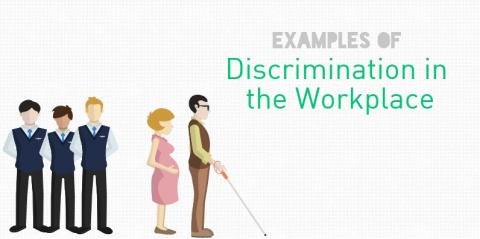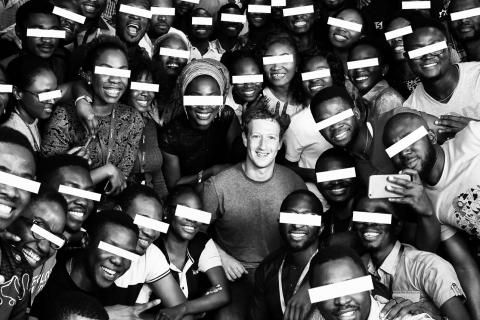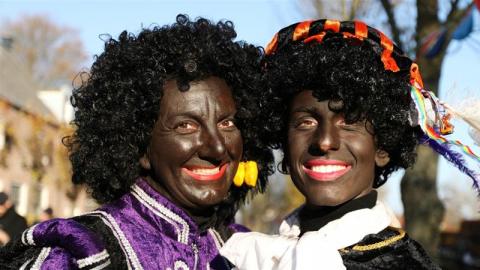+1(209) 348-9544
order@myessayservices.com
+1(209) 348-9544
order@myessayservices.com
![]() Are you in High School, College, Masters, Bachelors or Ph.D and need specialist in your field to help write your research paper? All you need is to ask for research paper help written by a specialist in your academic field. When you buy an essay online from us, we offer you an original, nil plagiarized and unique paper written by a dedicated writer who is PhD or Masters qualified. MyEssayServices.com is an experienced service with over 9 years experience having delivered over 83,000 essays over the years.
Are you in High School, College, Masters, Bachelors or Ph.D and need specialist in your field to help write your research paper? All you need is to ask for research paper help written by a specialist in your academic field. When you buy an essay online from us, we offer you an original, nil plagiarized and unique paper written by a dedicated writer who is PhD or Masters qualified. MyEssayServices.com is an experienced service with over 9 years experience having delivered over 83,000 essays over the years.


 A black applicant that had a white sounding name when called to the interview was more likely to be turned down. This is because the name discrimination tried to ensure that the interviewed persons were not black. Therefore, the interviewers will try everything in order to disqualify the black candidate as he was not wanted in the first place.
A black applicant that had a white sounding name when called to the interview was more likely to be turned down. This is because the name discrimination tried to ensure that the interviewed persons were not black. Therefore, the interviewers will try everything in order to disqualify the black candidate as he was not wanted in the first place.
In the name discrimination system, prejudice comes in when a name is announced, if it is sounds like it belongs to a black man then in most cases the person is sidelined (Russell-Brown, 2009). Further, when the person turns out in person, discrimination is also more likely to occur because of his or her skin color (Price, 2011). However, if a black person with a white sounding name is called to an interview, he or she might have the chance to convince the panel that might be multi-racial. Therefore, his or her chances of gaining employment increases dramatically as the person are able to have a chance to prove him or herself.
Organizations should ensure that there is transparency when it comes to the selection process. There should be a committee that overlooks the selection process and also the presence of an inter-racial group that is involved in the selection process (Price, 2011). This will effectively reduce the discrimination that exists in the selection process because of the name based discrimination. These steps can be known that they are working by the increase of diverse persons in the selection process.
 Help-wanted advertisements in both Chicago and Boston newspapers were responded to by resumes that were sent by African Americans that had names that sounded like they were white. It was determined that the persons given White sounding names received more call backs as compared to those that sounded like they belonged to Black Americans (Bell, 2012).
Help-wanted advertisements in both Chicago and Boston newspapers were responded to by resumes that were sent by African Americans that had names that sounded like they were white. It was determined that the persons given White sounding names received more call backs as compared to those that sounded like they belonged to Black Americans (Bell, 2012).
References
Price, A. (2011). Human resource management. Andover: Cengage Learning EMEA.
Bell, M. P. (2012). Diversity in organizations. Mason, Ohio: South-Western College.
Russell-Brown, K. (2009). The color of crime. New York: New York University Press.
Introduction
 It has almost been two decades since the acting white hypothesis was brought up- the premise that black students are often driven toward low school performance because of racialized peer pressure and this has served as an explanation for what is referred to as the black-white achievement gap. In fact, several researchers have argued that indeed black youths often sabotage their own school careers by taking an opposition stance toward academic achievement. The definition of acting white therefore, refers to social expectations traditionally associated with white society including the accumulating serious wealth and consequently achieve higher levels of education and attain status through professions, academic or otherwise. There is no denial of the fact that what is perceived as the modern form of education was primarily derived from white people and more specifically Europeans.
It has almost been two decades since the acting white hypothesis was brought up- the premise that black students are often driven toward low school performance because of racialized peer pressure and this has served as an explanation for what is referred to as the black-white achievement gap. In fact, several researchers have argued that indeed black youths often sabotage their own school careers by taking an opposition stance toward academic achievement. The definition of acting white therefore, refers to social expectations traditionally associated with white society including the accumulating serious wealth and consequently achieve higher levels of education and attain status through professions, academic or otherwise. There is no denial of the fact that what is perceived as the modern form of education was primarily derived from white people and more specifically Europeans.
The story can be described as being old as time, Europeans came to America in a bid to get a better life, and shortly thereafter, the importation and enslavement of Africans official began. The slavery ended and black people in the United States were no formally allowed to participate in the society. The civil rights movement of the 1960’s brought about what can be described as sweeping changes towards the integration of black persons into the nation. However, decades later, the effects of these eras are still present in the society, and specifically the idea that a black person that educates themselves are often acting out of character and they are assuming white culture.
Statement of Purpose
The American society has advanced in an extraordinary way, people have been able to get their information right and civil rights have been accorded to each and every American despite their social status, race or sexual orientation. However, among Africa Americans there is still a problem in regards to the ‘acting white’ phenomenon. This is a situation where the black persons criticize others by arguing that they are not acting as they should and they are trying to act like white persons. This is in many cases regarding to education. When black persons excel in school, they are told that they are acting white. This paper is going to examine the perceptions of acting white in a black society and will particularly look at the school going children and whether they are affected by this theory.
Research Methodology
This research methodology interviewed 25 African American that were in High school regarding to their perceptions regarding acting white and whether the theory affected their performance in school. The research encompassed three high schools and there were 15 males and 10 females. They were aged between 13-20 years and came from different backgrounds. All of the participants had been introduced to the phrase ‘acting white’ and they all understood its meaning. The research team then went ahead to measure student achievement with a composite of grade point average (GPA) that was based on self-reports on their recent grades in science, social studies, history, English and Math. There was also the use of secondary sources in the research. The interview questions were structured in a way that would ensure that the subjects presented their perceptions in regards to acting white and whether they are affected by the theory. A review of literature that was in relation to the study was looked at the most prominent being that of Fordham and Ogbu who proposed that indeed black youths often possess an opposition stance when it comes to academic achievement. Therefore, this research was able to utilize existing data in order to effectively determine whether the ‘acting white’ phenomenon still had roots in the education system in the United States of America.
Self-reporting was one of the biggest challenge in terms of the research methodology. This is because subjects were self-reporting on their perceptions and they were the ones that argued whether indeed the theory affected their performance in school.
Statistical analysis
The research will use canonical correlation in order to see whether indeed there exists relation between the ‘acting white’ and the student’s performance. This is because after being introduced to the concept and based on their perceptions, it can be seen indeed whether the theory has an effect on these persons. SAS, Stata and SPSS will be used in order to get this canonical correlation that exists between these variables.
Major findings of the study
Anthropologists have often argued that social groups often try their best to seek and preserve their identity, this is an activity that often accelerates when there is a threat to the internal cohesion of the community. It is of the essence to understand that within a group, the more successful individuals can often be expected to enhance the power as well as the cohesion of the group as long as their loyalty is not in question. However, if the group risks losing its successful members to outsiders, then the group often seeks to prevent this outflow. Ten of the twenty five subjects that were interviewed argued that they believed that the ‘acting white’ perception was rife in their schools and was constantly practiced. Eight of the twenty give agreed that it had an effect on them and their GPA showed that indeed it did.
However, 17 of the participants argued that it did not affect their performance. However, it is important to understand that 22 participants argued that indeed they were did not experience any pressure in regards to finding education. This is in contrary to white children that argue that they often feel pressure especially when it comes to education as they are expected to perform highly. This data shows that indeed the young persons that were interviewed believed that the ‘acting white’ phenomenon did not affect their performance in the school. This is because they realized that in order for them to be successful they had to ensure that they give themselves a chance at education. However, there was a group that cannot be ignored that argued that the ‘acting white’ phenomenon did affect them and consequently they were not able to perform well because they were blacks (Ainsworth-Barnell, 1980). They had the notion that because they were black it was not expected of them to perform well in school. If they did perform well, then they would be acting out of character and culture. This is because the black person was not expected to perform well in school and if they did so they were consequently ‘acting white’.
However, with the 17 persons it was determined that they were not tied to their cultural heritage, they believed that they had advanced to a point where their level of education could not be associated with their race (McArdle, & Young¸1970). The United States has changed into a society where all the races have the opportunity to become professionals, they can be able to make lasting community impact, and hold political offices as well as set examples for future generations. There are some researchers that have argued that there is nothing that exists such as acting white. They argue that if it existed it would discredit all the African Americans that have risked their lives in order to get an education in a society that is white dominated. The researchers argue that captive and freed slaves, children and the adults of the civil rights movement did all they did for nothing.
Comparison with other major findings
The oppositional culture theory was developed by Ogbu and Fordham in their wake of different experiences at ‘Capitol High’. They accounted for the observed differences between blacks and whites and argued that white people often provide black persons with inferior schooling and treat them in a different way. Secondly, Ogbu and Fordham argued that by imposing a job ceiling, white people in many cases fail to reward blacks adequately for their academic achievement in their adult life. As a result of these two factors, Black Americans tend to develop coping devices that in turn limit their striving for academic success. The problem came to be when Americans traditionally refused to acknowledge that in fact Black Americans were capable of intellectual achievement and with time the Black Americans soon started to doubt their own intellectual ability. In fact, it is of the essence to understand that it reached a time where the black man started to define academic success as a white man’s prerogative and consequently started discouraging their peers.
Johnson (2013) argued that the definition of acting white is a two-fold concept. The first definition is that a person tries to assume white culture and tries to behave in the way of the white man. The other definition is that persons are that are ‘acting white’ are betraying their culture. This therefore, means that in pursuit of a better education, professional achievement and financial success, black Americans are often denying their roots, and cast them away from something that the white society is deemed to be more desirable (Ainsworth-Barnell, 1980). However, there are some black persons that have been able to achieve success and unfortunately they have been given the tag of ‘acting white’.
There are other researchers that have argued that there is a portion of the black American society that believe that indeed the usage of term ‘acting white’ is neat little way to be able to put the black man into a prepackaged box. They argue that the term was developed as a workaround in order to help people cope with black achievement (Ainsworth-Barnell, 1980). Therefore, the use of the phrase ‘acting white’ often incites the deplorable process of stripping someone down in terms of their race. It is often considered unfathomable that a black American be able to succeed in any other areas other than athletics and entertainment. It is of the essence for persons to understand that achievement and success are often determined by strength, character, and the level of determination that one possess and never skin color. Therefore, these researchers argue that to credit anything other than hard work for any leading thriving lines is a path that can be described as problematic and trite.
Meaning to the United States and the world
 Public figures often arouse controversy and it is imperative to understand that before Barack Obama was elected president, he received criticism in the year 2007 as ‘acting white’ by Jesse Jackson in relation to a case that involved black people. Also it is of the essence to understand that before Barack Obama won the election, a longtime activist referred to as Ralph Nader accused the senator of talking white. In a speech by Obama, he strongly criticized the thought of acting white and argued that children cannot be able to achieve success unless the expectations that the society have on them are raised and that there is complete eradication of the slander that often says that a black youth that is reading a book is acting white. However, with the research, it can be seen that indeed black children are slowly changing their perceptions regarding ‘acting white’ and they believe that they can be able to achieve a lot if they put more effort in it.
Public figures often arouse controversy and it is imperative to understand that before Barack Obama was elected president, he received criticism in the year 2007 as ‘acting white’ by Jesse Jackson in relation to a case that involved black people. Also it is of the essence to understand that before Barack Obama won the election, a longtime activist referred to as Ralph Nader accused the senator of talking white. In a speech by Obama, he strongly criticized the thought of acting white and argued that children cannot be able to achieve success unless the expectations that the society have on them are raised and that there is complete eradication of the slander that often says that a black youth that is reading a book is acting white. However, with the research, it can be seen that indeed black children are slowly changing their perceptions regarding ‘acting white’ and they believe that they can be able to achieve a lot if they put more effort in it.
The research showed that indeed the perceptions of the children are changing towards the better and this therefore, means that in a few years the concept of ‘acting white’ will be a thing of the past. However, it seems that black parents and the black society at large are not able to effectively control their perceptions towards ‘acting white’. This is because they have do not put pressure on their children to perform well in school. This can be seen by the fact that 22 out of the 25 persons were not able to feel the pressure to perform in terms of their education. This is because they were black Americans and consequently, they are often expected by the society not to perform well in school.
Therefore, in the future, as Fordham and Ogbu (1986) stated, there is a need for the black people to re-examine their attitude towards schooling. However, there are several researchers that argue that this line of reasoning is faulty and that there is a need to re-examine the attitude that exists in the society towards the black community and to be able to provide a more equitable and supportive sense of educational experiences. Therefore, in the United States rather than changing the cultural meaning of schooling in the black communities, there is a need for the society to change the context of schooling in a bid to promote proactive Afrocentric and also to provide all the material as well as cultural resources that are often necessary in a bid to properly educate black youth in America.
Conclusion
In conclusion, the study showed that black perceptions towards ‘acting white’ are changing by the day and that black students are becoming more aware that indeed the perception of ‘acting white’ is nothing but an illusion. However, it is of importance to understand that the society has not completely changed their perception as the children reported the fact that they did not feel any pressure in regards to their education and this was because they were black. Therefore, the children are slowly changing their perception in regards to ‘acting white’ but the society has not yet changed this understanding.
Reference
Ainsworth-Barnell, J.W. & Downey, D. B. (1998). Assessing the oppositional cultural explanation for racial/ethnic differences in school performance. American Sociological Review, 63, 536-553.
Fordham, S., & Ogbu, J. U. (1986). Black students' school success: Coping with the "burden of 'acting White." The Urban Review, 18(3), 176-206.
Fordham, S. (1988). Racelessness as a strategy in Black students' school success: Pragmatic strategy or pyrrhic victory? Harvard Educational Review, 58(1), 54-84.
McArdle, C.G., & Young, N.F. (1970). Classroom discussion of racial identity or how can we make it without "acting White"? American Journal of Orthopsychiatry, 40(1), 135-141.
Browse More Essay Topics 24/7/365 Support 11+ Yrs in Essay Writing Pay for Quality not Quantity Score that A+ Grade
Affordable Papers
Research Paper for Sale
Cheap Research Papers
Buy Term Papers
Buy Research Paper
Write My Paper
Buy an Essay
Cheap Essay Writer
Write my Essay
Thesis Help
Dissertation Help
Paper Writing Service
Pay for Homework
Pay for Research Paper
Do My Essay for Me
Pay for Essay
College Papers for Sale
Do My Homework for Me
College Essays for Sale
Buy Research Papers Online
Buy College paper
Client: "(Berlin, G.K., CA)"
Topic title:"Leadership shortfalls in Blue Chips"
Discipline: "Economics"
Pages: 5, (APA)
" Awesome, the writer delivered it as required by the professor. They also sent me a plagiarism & grammar report Wow!. I was worried about how the essay would turn up but this is exactly what wanted. Thank you and will be back with a longer essay"
Accounting Research Papers
Business Research Papers
Communication Research Papers
Computer Science Research Papers
Economic Research Papers
Film Studies Research Papers
Finance Research Papers
Geography Research Papers
History Essays
Psychology Research Papers
Political Science Research Papers
Nursing Research Papers
Mathematics Essays
Management Essays
Literature Essays
Law Essays
World Affairs Essays
Technology Essays
Sociology Essays
Science Essays
Religion Essays
+1(209) 348-9544
Terms
Privacy
Sitemap
Frequently Asked Questions
0% Plagiarism Guarantee
Money Back Guarantee
Revision Policy
